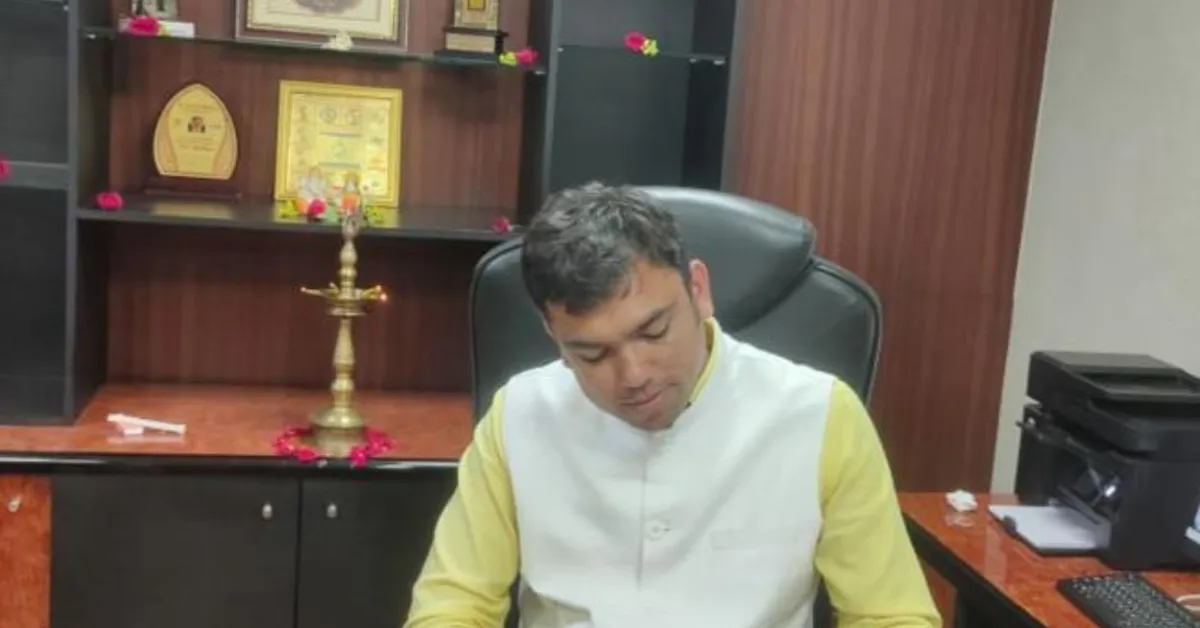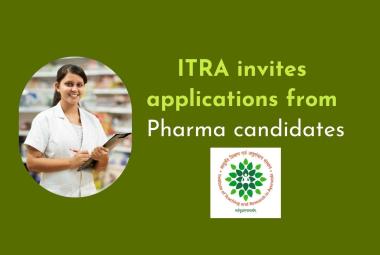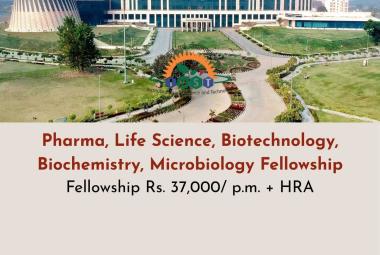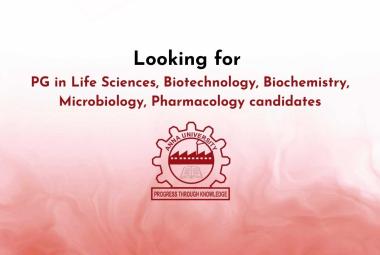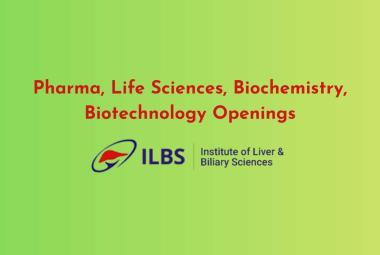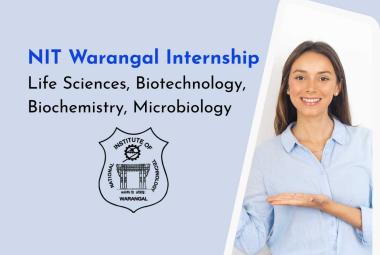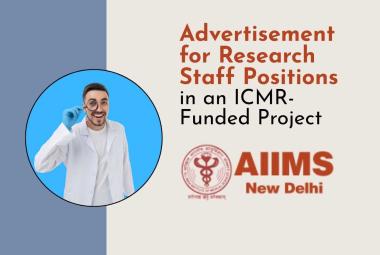Interview of Dr. Montu Patel, President of Pharmacy Council of India (PCI) was conducted on 3rd May 2022 at Ahmedabad, Gujarat.
There is a huge difference between industry pharmacy and Hospital pharmacy. Right now, there is a single syllabus for both. But now we are planning to differentiate both streams, for community pharmacists and industrial pharmacists. Now, many rules have come for medical devices also but still it is not included in our syllabus. So, we shall also include medical devices in the new syllabus of UG and PG. We shall also include genetics in the syllabus and pharmacovigilance...
You started as president of the state council, then joined the national council as EC member and now elected as president, what are the differences in working?
When I became president of the state council, I was a M.Pharm passed out student. And it was a learning phase for me and I gave my full time to the state council for learning and developing. When I went to register for the first time, I realised the difficulty level for registration and problems faced by me. So I decided to start this process online to save time and money for pharmacy students and professionals.
There are many issues like people are coming to register as pharmacists but they are having non-attending degrees or fake degrees or diplomas. I realised that we and our parents did a lot to get pharmacy degrees while many are getting degrees by power of money. Many of the non-attending diploma holders were coming from families of doctors or physicians, but blame goes to chemist associations. I opposed it and stopped all those applications and initiated action against such diploma colleges.
Later I got an opportunity to serve in the central council, pharmacy council of India where on the first day I took up all the agendas and fought an election for EC (Executive Committee) member where all the council members supported me. Then, as a EC member I took action under section 20 against all the colleges for which we were getting complaints for a long time but no one was ready to take action against it and recommended PCI for surprise inspection of such institutes.
After a few months when our president sir (Dr. B. Suresh) resigned from the post, many PCI members trusted me because a lot of revolutions are required in the field of pharmacy in the country. There are many issues in online pharmacy, hospital pharmacist, industry pharmacy etc. There is a need for changes to fight these issues, still we were busy celebrating the 75 years old act. No one was thinking about professional issues. I kept all these points in front of the PCI members, on which they responded positively and gave me responsibility as president of the pharmacy council of India.
As you have seen the first president of Gujarat state pharmacy council, then EC member and now president of PCI, I always try to work and prove the trust that People have kept upon me. We shall work with all the stakeholders like Indian drug manufacturing associations, all India chemist and druggist associations, government pharmacist associations etc and try to solve their ground level difficulties.
 D.Pharm exit exam and now also working on the age limit of admissions in diploma. How will it improve the pharmacy profession?
D.Pharm exit exam and now also working on the age limit of admissions in diploma. How will it improve the pharmacy profession?
When we talk about diploma in pharmacy, let me tell you that no part of the developed world has a diploma in pharmacy. But our India is a country made of villages and many people cannot afford higher education. Such parents want their children to complete their education faster and get a job or profession. We also talked with the Government of India and they clearly mentioned that wherever rural areas are there, there should be a qualified pharmacist present to dispense the medicine and provide patient counseling in government facilities or private clinics or hospitals. Therefore, to increase the value of diploma pharmacy education, the government provisioned an exit exam in it.
From this year, we shall start the exit exam depending on the national board of examination (NatBoard) which is also responsible for taking the NEET exam. We have already passed it in executive board meetings and soon we shall give the proposal to NatBoard to take the exit exam. Within 3 months, we shall create a policy framework for the exit exam.
Exit exam will surely increase professional values because it will stop illegal activities from non-attending candidates. It will also close businesses of illegal institutes. Because it's a competitive exam and after clearing it only candidates can register as pharmacist in any state of India.
When we talk about such exit exams, there are many developed countries where qualifying exit exams are required after degree courses. In future, we may bring exit exams for graduates also.
From now, what will be roadways of PCI for PharmD students and pharmacy practice regulations?
Pharm.D is really a great course introduced by PCI and it is the only course which is matching the global standards. Government of India has already initiated steps to promote Pharm.D professionals along with PCI. And for that whichever new policies are introduced by the Government, Pharm.D professionals will get more recognition in that. Because when we talk about the matching of global standards for clinical pharmacy or how Indian pharmacists can work like foreign pharmacists, first we need to create such a culture or environment in India. And for that we have already given recommendations to the Government to create a post of Clinical Pharmacist in government hospitals or PHC or CHC centres.
We have also recommended to the government of India to give restriction prescription rights to Pharm.D graduates for primary treatment in the areas where availability of physicians is not there. And the government seems positive in that but there will be a meeting with NMC and then we shall decide on that.
There are different associations and groups of pharmacists, Is it possible to take them under one umbrella? How?
This is a drawback of our pharmacy profession and we need to do analysis for that. Since I took charge as president, I went to different places and I just gave them a single message that Doctors come under a single banner even if they are just MBBS or specialised in ortho or surgery. Whenever any agenda or problem comes for them, it comes under a single banner. Therefore, our pharmacists should also think about it that if any problem comes in the profession, it should come under one umbrella only.
Instead of that we are separated in many associations like industries have their association, government pharmacists have their separate association, chemist and druggist have different associations. And because of that we are divided into separate sectors but ultimately all the associations have a single motto to increase the value of the pharmacy profession.
So we have to come under a Pharmacist banner to come in a single umbrella. If someone says I'm a Vice chancellor but I think first he is a pharmacist. If someone says I'm a regulator but first they are also pharmacists. If this type of thinking is developed by everyone, it will grow the profession.
For example, if any teachers are having problems with their salary, they cannot plead against management or government. So ultimately they get exploitation from it. But if they will join under the pharmacist banner, and now they have any such problems, all the professionals from industry or hospital pharmacy will support them. Same way if chemists will be getting any problems, other professionals like teachers, industry pharmacist, hospital pharmacist will support them. And if hospital pharmacists will have any problems, industry, regulators and other professionals will support them.
Therefore, I think every pharma professional should come under the pharmacist banner and we shall work on this roadmap.
And how PCI is looking in E pharmacy?
E-pharmacy is a big question because it is about to finish our pharmacy profession. Pharmacy profession is about giving patient counseling and providing quality medicine whose temperature must be maintained. There is the biggest drawback of e-pharmacy if medicine reaches the patient home in any temperature during its transit. It is affecting the potency of medicine.
Medicine is a very important part of any population, just as for diabetes and hypertension. Sometimes to get a discount if patients get such medicines from improper sources and medicines do not have proper potency, it can negatively affect their blood sugar level or blood pressure level.
So PCI will make a committee for e-pharmacy which will work on how we can protect pharmacists' rights, patient counseling and dispensing of medicine which will ultimately benefit the pharmacy profession. We shall also take care of ethical practice and make sure that none of the commercial companies will misuse power from pharmacy act and PPR 2015. Because we cannot dispense medicine without patient counseling which is mentioned in pharmacy act and PPR 2015.
One Nation One Pharmacy Cadre, how PCI is addressing this issue?
First of all I want to inform you that we have already given this proposal to the government of India. I have given this proposal for Junior Pharmacist, senior pharmacist then Chief Pharmacist and even for administrative pharmacist.
Nowadays, the government is framing many policies in which they are trying to reduce the workload of doctors. Also in many medical corporations, doctors or other staff are looking for procurement of medicine instead of pharmacists. There should be pharmacists in head positions of such procurement areas.
Government has also asked us to differentiate all the pharmacists. Because if one goes for a diploma, it is a 2 years education whereas BPharm is 4 years of study. Again if someone is going for M.Pharm then it will be a total 6 years (including degree) and the same way for Pharm.D, it is 5 years of education. But still all of them are treated and registered at the same level as Pharmacists. Diploma holders will be restricted at some level.
Inclusion of Pharmacist as Community Health Officer, what's your take on it and how PCI and other state councils are working on it or will work on it?
For Community Health officers initially in the first draft, Pharmacists and Nurses were included but later in the final draft pharmacist is excluded and other professionals are added in that. We shall ask the Indian government to include pharmacists in CHO and I guess PharmD graduates can fit in this profile.
But NHM said that, Pharmacists are not eligible because they are not Gynaecology, Paediatrics, Mental Health etc during their curriculum, how will you cope with that?
For that only the Government has recommended defining industry level and community level both sectors discretely. Those who are willing to work in industry, will study industry level courses and those who are willing to work in community, will study the same. As you mentioned that our syllabus is lacking many topics and we are studying just an overview of many aspects, we shall sort out this problem in the new curriculum.
In future, we are also planning to bring specialisation in clinical pharmacists just like physicians. As you have seen MD in pediatrics or MD in ortho, we are thinking of pharmacists in pediatrics etc. Because in pediatric patients if by chance high dose is prescribed, the patient can face many serious problems or ADRs.
Can't you start any bridge course for 6 months or a year and cover all the topics required by NHM or NMC for CHO?
I think if the government is ready to accept our proposal then there will be no requirement for any such courses.
Students from premier institutes get placements but there are many institutes where placements are not there. In that case, how can industry level recruitments be increased?
As you have seen in the Gujarat state pharmacy council, we have created a job portal and it is working properly with recruitment. Also many members from PCI have suggested to me that students are not able to get placement if they don't have any connection in industry. Same way, we are planning to create a job portal for the central council.
The Government of India is also planning to make all the database of pharmacists online under national health authority. If any pharmacist wants to go abroad, just by one click, all data can be seen by foreign authorities to verify pharmacists identity.
There are many unicorn start-ups coming up in the country. Is PCI working for entrepreneurship development in pharmacy?
Since last 75 years the pharmacy council of India has only worked for framing syllabus, inspecting institutes and selecting inspectors. But after our new team came, we shall start work in this regard.
There are many teachers or students engaged in research and they patent many formulation processes or products but those patents are not getting acceptance at industry level because industries are not aware about such research. And for that PCI will organise industry-academic meet twice a year and we shall try to increase our research accessibility to global level. And we shall try to start development in the pharma entrepreneurship field from research.
If anyone wants to do business, the Government of India is having Pradhan Mantri Janaushadhi Yojna. We can also support directly if anyone wants to start a medical store.
But the key question ahead of PCI is funding. How will a GPAT qualifier get a scholarship if the institute is not AICTE approved?
In 2020, the honorable supreme court gave judgement that PCI is the supreme body for affiliation for Pharmacy colleges.
Now, AICTE is getting funds from the government of India for GPAT stipend and research grants. So we are trying to work on how those funds will be provided to PCI through the health ministry. And all the pharmacy colleges and teachers have to follow a regulation from PCI. Generally, institutes are affiliated with AICTE only for research grants and GPAT stipends, so we shall come up with provisions on funds and grants this year itself.
Is PCI planning a new syllabus framework and if yes, how will the new syllabus be helpful for increasing the quality of pharmacy graduates and employment?
Currently, we are constantly meeting our honorable health minister Mr Mansukh Mandaviyaji who has initiated the Heal by India program as per which we have to design a syllabus comparable with foreign education systems and our pharmacist is able to work in any part of the world.
We are developing syllabus for UG in specialisation and PG in specialisation and we have already developed the initial or rough draft of it. As earlier, I told you that there is a huge difference between industry pharmacy and Hospital pharmacy. Right now, there is a single syllabus for both. But now we are planning to differentiate both streams, for community pharmacists and industrial pharmacists. Now, many rules have come for medical devices also but still it is not included in our syllabus. So, we shall also include medical devices in the new syllabus of UG and PG. We shall also include genetics in the syllabus and apart from that pharmacovigilance which is a major part for our profession, will also be included in our syllabus; our work is to report adverse drug reactions to the Government for more research on medicine or to ban if required. So, we shall include a provision for this.
There are many villages in our country and we do not have any health records in those areas to analyse the patient outcomes. For that, PCI will guide pharmacy institutes to adopt 10-15 villages and collect medical records from them and we shall submit those data to the health ministry which will eventually help them to recognise rationalisation of medicines. Because sometimes we take multiple medications and after a long time we realise that these medicines have particular adverse reactions.
We are also going to put an option that one can also study both industry and community pharmacy if one wants to. This is required in case someone wants to join the teaching profession, which is again a humble profession. So, we have kept selective subjects.
Another important part we may add is finance. Because, the Indian government recommended to us in a recent meeting that pharmacy students should have basic knowledge of banking and accounts. Also we are going to add soft skills and language skills. Students should have basic knowledge of the local language, English or German etc. So, it will be helpful for students if they want to work globally.
Also, in many institutes we are not allowing handling of instruments to all students. Generally, we form a batch of 3-5 students and they are asked to handle instruments in groups. So for that we are also going to include semester wise instrumental training for individual candidates.
We are also focusing on industrial training for students. We are going to ask institutes to make such MOUs with 3-4 industries and submit it to PCI. So, it will bring genuine training to all the students. Same way, for diploma colleges we shall ask them to make such MOUs with government hospitals. Then, only we can create quality pharmacists for the market and ultimately India will grow.
How will suggestions from different states or colleges be invited? Are you also considering opinions from industries and other stakeholders?
Recently, we have selected Mr. Dipendra Singh for the education regulation committee. And I have discussed how to create a committee for that. We are going to create different committees for UG, PG, masters and Pharm.D which will be chaired by different PCI members. In which I have inserted a para that the committee requires professionals from industry, community pharmacist, teacher along with a pharma consultant who have proper knowledge about the pharmaceutical industry. So, ultimately we are planning to develop a committee which has representatives from all the community or sectors. It will help us to include syllabus from different sectors and later we shall again discuss it with all the stakeholders. It will be helpful to reduce the gap in syllabus.
We shall also meet with IDMA, AIOCD and different government associations and try to meet their requirements in syllabus. We shall also take suggestions from different state councils and senior academicians and researchers from industry as well as institutes. Our aim is simple to develop a syllabus which matches global standards.
Few institutes complain that PCI is not thinking about their suggestions?
Few institutes think that they can conduct courses with less teachers and fewer instruments. That is a different thing but we shall surely take their suggestions in education and syllabus framing.But we shall give first preference to teachers.


